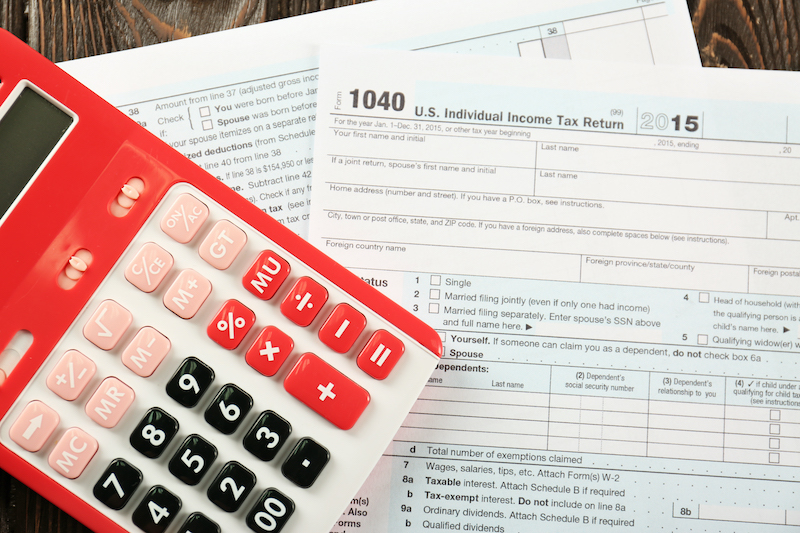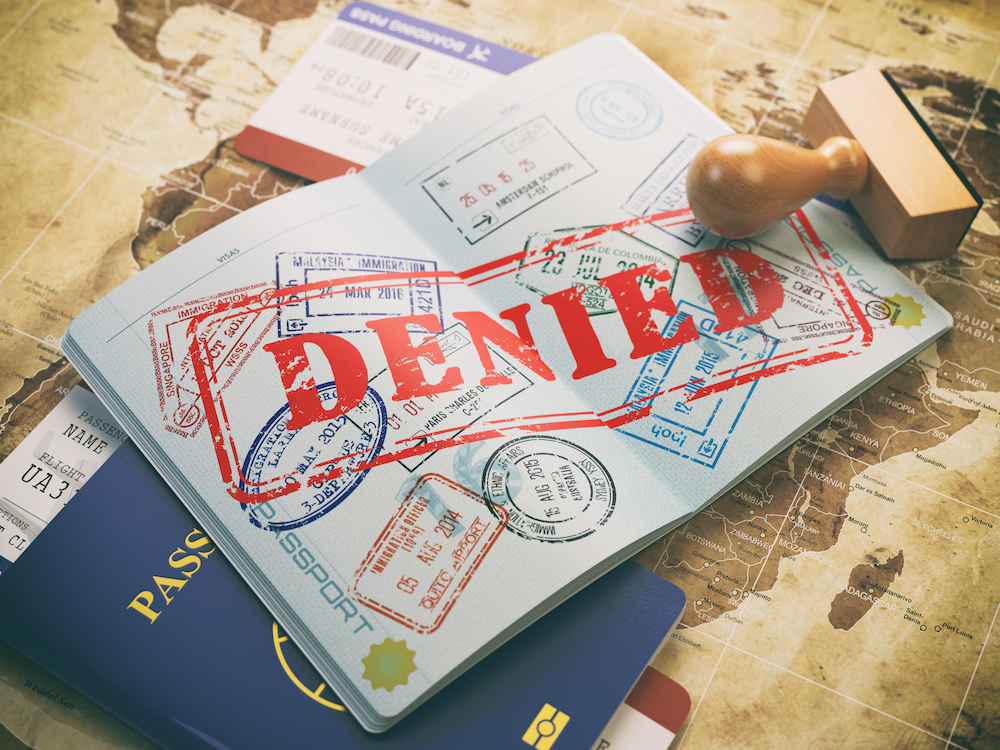Do I Need an Estate Attorney Or a Probate Attorney?
The question you may be asking is, "Do I need an estate attorney or a probates attorney?" The answer to this question depends on what you want to accomplish after you inherit someone's assets. Common assets such as real estate or stocks can be easily transferred to the heirs or beneficiaries. However, if you have special assets, you will need to consult an expert. A lawyer should be hired to ensure that your wishes are followed correctly.
 In New York, the courts will provide letters of administration for those who die without leaving a will. In such cases, you will need to hire a probate attorney. This is because this process can take years, and if you choose someone else, you might not be satisfied with the results. Moreover, you will need a lawyer who has a wealth of experience in this area, since a simple probate process may not be sufficient.
In New York, the courts will provide letters of administration for those who die without leaving a will. In such cases, you will need to hire a probate attorney. This is because this process can take years, and if you choose someone else, you might not be satisfied with the results. Moreover, you will need a lawyer who has a wealth of experience in this area, since a simple probate process may not be sufficient.
If you're unsure whether or not you need an estate attorney or a probate lawyer, you can try to fill out the necessary forms on your own. There are websites that will help you with this, but the form is still complicated and needs to be filled out correctly. If you're uncertain how to fill it out, a good online tool is EZ-Probate. You'll need a copy of the will or a valid will if there is one. Typically, an estate attorney will be needed to interpret the instructions of a will, so you'll only need an estate lawyer if you're unable to understand what the will says.
Having a will is the first step in the process. Once you have signed it, you should consult with an estate attorney. A will outline the intentions of the deceased and ensure that your wishes are carried out in the event of death. A probate lawyer will also advise you on the best way to set up a trust, if one exists. Ultimately, a probate lawyer will help you avoid legal troubles and preserve the legacy of your loved one.
You can find an estate attorney using the Internet. Regardless of the type of estate, the internet is a great resource for finding an estate attorney near you. The cost of an estate lawyer may be too expensive for the most basic documents, such as a will. For more complicated ones, a probate attorney can charge you thousands of dollars. If you're unsure of the need for an experienced lawyer, you can also search for one in your area.
 If you have enough assets, you can avoid a probate attorney. This is a good choice if you want to avoid legal trouble. Although they will be involved in the process, they are professionals and will be working with you for a short time. It is important to find a law firm that takes the time to follow up with clients. Having an estate attorney who will be dealing with your affairs is a wise choice.
If you have enough assets, you can avoid a probate attorney. This is a good choice if you want to avoid legal trouble. Although they will be involved in the process, they are professionals and will be working with you for a short time. It is important to find a law firm that takes the time to follow up with clients. Having an estate attorney who will be dealing with your affairs is a wise choice.
How Often Are Chapter 7 Bankruptcies Rejected Without a Lawyer?
If you want to know how often are chapter 7 bankruptcies refused, consider that the court will most likely dismiss your case if you didn't hire a lawyer. A bankruptcy attorney will be familiar with court procedures and deadlines, and will know how to make the strongest arguments in your favor. Besides, the attorney will be able to explain to the bankruptcy trustee exactly what happened to your assets.
 Whether or not your petition is approved will depend on a means test that examines your finances and if your disposable income falls below the median income. If your income is above the median, the court may order the sale of your non-exempt assets. Moreover, if you are planning on pursuing bankruptcy by fraud, you may lose your property and owe your debts. It is important to be honest with your bankruptcy attorney to ensure that your case is approved.
Whether or not your petition is approved will depend on a means test that examines your finances and if your disposable income falls below the median income. If your income is above the median, the court may order the sale of your non-exempt assets. Moreover, if you are planning on pursuing bankruptcy by fraud, you may lose your property and owe your debts. It is important to be honest with your bankruptcy attorney to ensure that your case is approved.
False statements made in your bankruptcy application could lead to your filing being denied. During the bankruptcy filing process, you state under oath that you are truthful about your finances and that no ill-gotten information was hidden. In this way, your case can be challenged later. Also, you must complete a personal financial management course before your bankruptcy is filed, and again before you are discharged. This is a court-ordered course, and if you fail to complete it, you may lose your property.
If your assets are substantial, you may be able to retain some of them. If you have regular income, you will most likely be able to keep the real estate in your case. However, if you don't, you might want to reconsider your petition. There are several reasons why your petition may be denied. The most common reason is because your financial circumstances have changed since you filed your petition.
When filing for bankruptcy, you must ensure that you have all the required documents and the right documents. The bankruptcy trustee can question the validity of your documents. If your creditors are not satisfied with the results of your bankruptcy, they can file a lawsuit. If you don't pay your bills, you might be denied. A discharged bankruptcy can make it difficult to find a new job. Therefore, a chapter 7 bankruptcy should be used only when you absolutely need it.
 In addition to being denied, a bankruptcy can have a significant impact on your life. It can negatively affect your equity and luxury possessions. You may need to wait several years after your bankruptcy is approved before you can apply for a mortgage. When filing for chapter 7, you should remember that the discharge is only valid for a few years. This is because it will not have an impact on your credit
In addition to being denied, a bankruptcy can have a significant impact on your life. It can negatively affect your equity and luxury possessions. You may need to wait several years after your bankruptcy is approved before you can apply for a mortgage. When filing for chapter 7, you should remember that the discharge is only valid for a few years. This is because it will not have an impact on your credit
Do You Need Extra Training to Be a DUI Attorney?
In order to practice as a DUI attorney, you need to have at least a bachelor's degree. Many attorneys will tell you that they are the best, but do you need additional training in order to practice DUI law? First, ask for references, and don't hire anyone until you have seen a few of their cases. Another key consideration is experience. Choosing a DUI lawyer with a great track record will be much more successful than one with no experience.
 Second, you need to be certified in field sobriety tests. Most DUI/DWI cases involve the police administering and evaluating field sobriety tests. Most of the best DUI attorneys have completed extensive training in field sobriety tests. The National Highway Traffic Safety Administration, which is part of the Federal Department Of Transportation, requires all lawyers to be trained to properly administer these tests. They know how to properly evaluate and challenge the results of the tests.
Second, you need to be certified in field sobriety tests. Most DUI/DWI cases involve the police administering and evaluating field sobriety tests. Most of the best DUI attorneys have completed extensive training in field sobriety tests. The National Highway Traffic Safety Administration, which is part of the Federal Department Of Transportation, requires all lawyers to be trained to properly administer these tests. They know how to properly evaluate and challenge the results of the tests.
DUI/DWI attorneys should be aware of the different field sobriety tests administered by police. A first-offense DUI will result in a suspension of the driver's license for six months. If the DUI attorney fails the test, the driver may be given a restricted license. This type of license will allow the driver to drive for essential reasons, but they must install an ignition interlock device before driving. Once reinstated, the license will remain suspended until the driver passes the test.
If you decide to pursue this career path, you must attend an accredited law school. The American Bar Association and state bar authorities recognize accredited law schools. Admission requirements typically include high LSAT scores, undergraduate transcripts, work experience, letters of recommendation, and a personal interview. If you are accepted, the next step will be to select a qualified DUI attorney. This will ensure that you're eligible for licensing and employment.
DUI attorneys must have specialized training in constitutional law and the physiology of alcohol in the body. In addition to a law degree, a prospective criminal lawyer should have a good undergraduate degree and a solid track record of successful case results. Having a law degree is not enough, as the criminal justice system is a complex system. A qualified DUI attorney should have experience in all aspects of the practice.
As a DUI attorney, you will need to be familiar with local laws and court systems. In addition, you should also know the prosecutor on your case, since they will be negotiating a plea deal with you. Be sure to check whether your chosen lawyer is licensed in the area where you live, because the laws are different in each state. You should also ask if your prospective DUI attorney is certified in administering field sobriety tests, which is essential for an effective defense.
Can I Sue My Immigration Lawyer?
You can sue your immigration attorney if you are unhappy with your service. The process is complicated and your case is not going as smoothly as you would have hoped. A judge will want to see that you took reasonable steps to resolve the problem before filing the lawsuit. This can include calling the government and filing a service request or contacting the USCIS Ombudsman. These steps are very easy to do. Make sure to document everything from the time you contact the government to any correspondence you have with them. Whether you talk to the immigration office or a supervisor, document all the conversations you have and the outcome of each one.
 Another way to sue your immigration attorney is to file a lawsuit for malpractice. While suing your attorney is expensive, it is possible if you are unhappy with the work he or she is doing. However, you should seek legal counsel before filing a malpractice lawsuit. If your case was wrongfully delayed, you can take the attorney to small claims court. If your case has not reached a resolution yet, you can file an action for negligence in small claims court.
Another way to sue your immigration attorney is to file a lawsuit for malpractice. While suing your attorney is expensive, it is possible if you are unhappy with the work he or she is doing. However, you should seek legal counsel before filing a malpractice lawsuit. If your case was wrongfully delayed, you can take the attorney to small claims court. If your case has not reached a resolution yet, you can file an action for negligence in small claims court.
You can also sue the government for not keeping to published processing times for your case. The government is subject to deadlines, so your attorney can prove that delays in processing are unreasonable. For instance, you can sue your attorney if your case has been delayed for too long. In this situation, the immigration attorney can prove that the delay is due to a wrongful act committed by the government. Depending on the type of lawsuit, you may be able to receive a large settlement.
There are many instances when an immigration attorney's work has been inadequate and has resulted in the denial of immigration benefits. If you suspect that your immigration attorney is doing a poor job, you should immediately hire another one who is qualified to handle the case. In this case, the attorney will investigate your case and check your submission for mistakes. The original immigration attorney will review your documents to determine if he or she is practicing law.
If the immigration attorney was negligent, you can sue the government for the delay in processing your application. You can also sue if your application is being delayed or denied. If you feel your attorney did not do his or her job properly, you should consult an experienced immigration attorney. Do not attempt to fix the mistakes on your own. An immigration attorney will be able to investigate your case and prove the errors. If you cannot sue the government, then you can hire another attorney to handle the matter.
 There are many different types of litigation and you can use them to your advantage. If your immigration lawyer is doing a poor job, you should sue. A federal judge may find your case ineffective and your attorney could face a huge fine. It is in your best interests to hire a new immigration lawyer who is experienced in this area. It will be in your best interest to hire an experienced attorney. If your case is delayed, you should consider the next available options.
There are many different types of litigation and you can use them to your advantage. If your immigration lawyer is doing a poor job, you should sue. A federal judge may find your case ineffective and your attorney could face a huge fine. It is in your best interests to hire a new immigration lawyer who is experienced in this area. It will be in your best interest to hire an experienced attorney. If your case is delayed, you should consider the next available options.